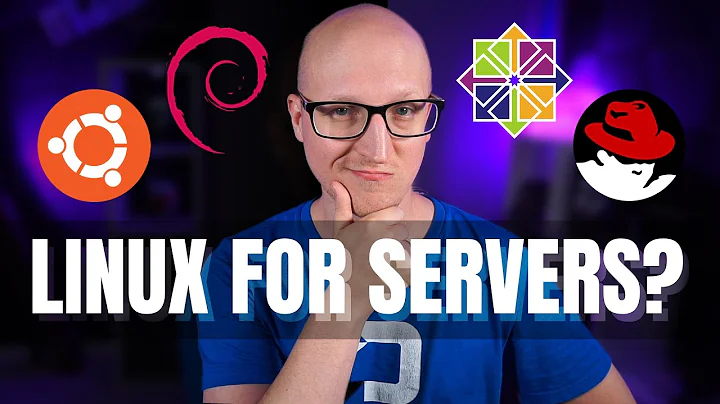FreeNAS versus a regular (CentOS/Ubuntu) linux server?
Solution 1
One of the greatest things with FreeNAS is that it uses ZFS. ZFS has a powerful feature called snapshots. You can take file system snapshots damn fast. With snapshotting you can make backups easy and more often. And also I am not sure why would you need package managers and web server on a dedicated storage server? Btw FreeNAS has web based administration tools. And I really don't recommend you to install anything besides OS on any storage servers unless you are not doing mission critical operations.
Also read this! http://www.freenas.org/about/news/item/freenas-803-release-notes
With FreeNAS you just install it and use. Nice web administration tools.
BUT. Personally just going to use FreeNAS on more serious things. Before that I was just playing with it. So I really don't know about hidden rock when using FreeNAS.
With Linux you would have more flexibility but also you would need to configure everything by yourself.
You have a choice.
Solution 2
I've gone through FreeNAS 0.7, OpenFiler 2.3/2.99, and somehow i ended up on Scientific Linux 6.x. FreeNAS seems to be concentrated on the interface more than the stability of the system and safety of your data. FreeNAS 0.8 was even less stable than 0.7 somehow (WTF? shouldn't software iterations make things better?). Openfiler 2.3 didn't have the hardware support I needed. 2.99 had the hardware support, but the stability was horrid.
So I went with a vanilla Scientific Linux 6.0 (newest at the time), and I havent had a glitch since. RAID1 for startup disks, iSCSI exporting LVM2/software RAID-5 over 5 disks. It's so stable it's boring.
Since then we have FreeBSD 9.0 that just came out few weeks ago, so that might be a good option, as long as it supports your hardware. I've used older FreeBSD's for servers in the past and they were very nice, so if 9.0 is of the same quality, it might be a nice option.
There is no one clear answer on these sort of questions, you usually end up picking whatever is stable enough that runs on your hardware, and fits your use case (ZFS over HBA's, or hardware RAID with LVM on it, do you need iSCSI, etc...) The best advice I can give you is boot them all up, and just see what boots first. That usually narrows the field quite a bit, making the selection process much shorter.
Related videos on Youtube
n0pe
Updated on September 18, 2022Comments
-
n0pe over 1 year
I'm looking to build a medium sized (6TB, mini ITX board) server for personal use. Most importantly, it will serve as a seedbox and will store a whole lot of data. I will be accessing the data over my home network on a regular basis.
I was looking around to decide which OS to use and fell upon FreeNAS. It looks pretty cool, but I was wondering if it would be able to do everything a regular server distro could do (package manager, easy updating, web server, etc).
Is FreeNAS really only good for an actual NAS setup and not a server? (Bonus points if you also include FreeBSD as a possible server OS).
-
iAndroid over 12 yearscan you tell us what kind of instability and problems you had? Lost link. Data loss etc?
-
 sr_ over 12 yearsI agree that ZFS is great, but be aware that FreeNAS ZFS support could lag behind. At the moment, FreeBSD 9.0 got ZFS v28; the next 8.x release, 8.3, apparently gets it, too -- but I couldn't find which FreeBSD version FreeNAS is based on. So if you're after ZFS, better check carefully or choose plain FreeBSD. (Also, people still use BSD for various reasons beside ZFS...
sr_ over 12 yearsI agree that ZFS is great, but be aware that FreeNAS ZFS support could lag behind. At the moment, FreeBSD 9.0 got ZFS v28; the next 8.x release, 8.3, apparently gets it, too -- but I couldn't find which FreeBSD version FreeNAS is based on. So if you're after ZFS, better check carefully or choose plain FreeBSD. (Also, people still use BSD for various reasons beside ZFS...:)) -
iAndroid over 12 yearsFreeNAS based on FreeBSD 8.0 freenas.org/features and yes, I am not going to start Holy War :D (*BSD vs Linux)
-
BrettRobi over 12 yearsFrankly, I don't remember anymore, I had two experiments going at the same time, one at work and another at home, so there was a lot of distros/hardware/configs tossed around.
-
n0pe over 12 yearsI've never used FreeBSD before. Coming from a Linux background, how easy is a LAMP/NAS/Seedbox setup?
-
BrettRobi over 12 yearsNot hard at all, there are some unique conventions & mechanisms, but ultimately it's Unix-relatives, so it's still plain text configs, command-line, files, and pipeline processing. Everything else is 'syntactical sugar' ;) Once you set it up, you won't even notice.
-
maruti almost 12 yearssmartOS is not the same as FreeNAS or Openfiler.....it is purpose built to do more than just storage. Also it has less equipped interface....its basically a hypervisor + Storage. Suggest you do a bit more reading on this...
-
Nikhil Mulley almost 12 yearsOh well, I was not comparing them but added few points to be noted about ZFS presence in SmartOS. BTW, SmartOS is "not" basically a hypervisor + Storage. On the suggestion of reading, sure let me know if you can point me to any relevant docs around.
-
killermist over 11 yearsWith the introduction of NAS4Free (the true heir of FreeNAS), the increase in FreeBSD version have pulled in the v28 pool format, with all the toys/tools. NAS4Free makes a great OS, be it for a "simple" NAS or scaled up to a server.
-
killermist over 11 yearsFreeNAS8 is a commercial project designed for the purpose of selling hardware. They abandoned a lot of the good design decisions of FreeNAS7 series. That with the inflated system "requirements" (because they're trying to sell more or more expensive hardware) makes FreeNAS8 very suspect.




